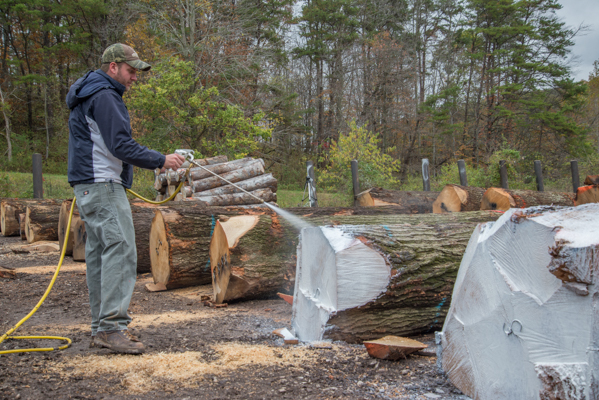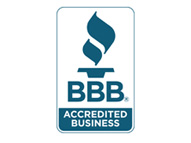Over the past month, I had the opportunity to sit down and talk with four of Yoder Lumber’s Millennials employees to find out what they desire in a career and organization. Being a millennial myself and working closely with our Human Resources department for job openings and recruitment, I found this project intriguing to learn about our employees’ past employment experiences and how they have landed at a career with Yoder Lumber. By closely listening to our employees, I was able to discover five related characteristics of what I believe Millennials are looking for in an organization.
Technology and Freedom to Use It
Millennials desire to use technology for continuous engagement with friends, family, and even co-workers. In the fall of 2015, our organization implemented an instant messaging system called Slack to assist with communication between divisions by creating peer-to-peer channels. Nexters are being progressive-minded in adapting faster to the use of technology. They grew up untethered with the constant use of technology thanks to wireless devices such as phones and tablets, and they remain connected with friends and family through text messaging, applications, and social media outlets. One of our employees, Daniel Shetler, shared his experience about using technology and a Mac computer on a day-to-day basis.
“At Yoder Lumber,” Shetler shared, “I use an Opti-Match machine which color sorts 95% of our material for glued-up panels. When using a technology like the Opti-Match, consistency is an important factor. The machine outdoes what 10 employees can do.”
Continuous Learning and Education
Today, more and more young people are attending college with roughly 52% of twentysomethings acquiring either an associate or bachelor’s degree. Millennials still need the skills to help develop them for future leadership positions. According to Alexandra Levit, a speaker, writer, and consultant on generations in the workforce, “Companies that want to succeed in the future must invest now in getting them up to speed quickly.”
Jonathan Regan, a Maintenance Technician at the Berlin division, shares about his experience taking additional college level classes offered through The Ohio State University (OSU) Agricultural Technical Institute (ATI) branch in Wooster, OH.
"This course was extremely valuable because I now make better decisions. We have looked at taking other courses in welding, hydraulic, and pneumatic that would help greatly on our day-to-day jobs."
At Yoder Lumber, we have partnered for a three-year commitment with Appalachian Partnership for Economic Growth to provide continuous training for our future leaders through in-class instructions. In addition to our classes, supervisors arrange for cross training and rotational programs to learn about other career opportunities within each plant. At our Buckhorn plant, John Oren Miller has been employed with Yoder Lumber since the age of 15.
Miller stated, “I would not want to stack lumber my whole life. I wanted to start low and work my way up and stacked lumber for three years. Over the past year and half, I have been switching back and forth between the sawyer position at the resaw band mill cutting lumber and doing small maintenance jobs.”
Enjoyable Work Environment and Satisfaction

Millennials are looking for a job and career they value, and at the end of week they want to know their employers value them for their hard work and dedication. From my research about Nexters and spending time with my coworkers, I have observed a connection across our organization. When comparing to previous generations such as the Baby Boomers, Millennials desire to write our own job description. Millennials have a deeper sense of satisfaction about the value they bring to the company and hunger to have a greater sense of purpose in life.
Adam Ward, a Log Procurement and Forester, is based out of the Rolling Ridge Woods office in Parkersburg, WV. Adams works with log buyers to purchase quarter-sawn and veneer logs and also assists Ohio and West Virginia landowners with properly managing their forest and timber properties. Ward shared about the opportunity to do more than one task when determining who to work for.
"There were opportunities available for multiple roles at Rolling Ridge Woods,” Ward said. There wasn't just one specific job to do. If you wanted to do forestry or log buying, those options were on the table."
Ability to Take Time Off – Work-Life Balance
Our employees across seven business divisions work incredibly hard to provide a quality product and service to customers worldwide. Across three plants in Ohio and one log yard in West Virginia, employees labor an average of 47.5 hours per week. Millennials will admit they don’t even compare to the level of hard work environments when stacked up against previous generations.
“We are hardworking, but if you look back to the Builders generation (1915 to 1945), many had more physically demanding jobs,” Shetler said.
Adapting to a new culture of work/life balance is important and can be an element necessary for hiring managers to consider. Shetler shared about having a work-life balance and vacation time to spend with friends and family. 
“The amount of paid time off (PTO) is good, and if a guy wants a PTO day, the supervisors don't complain about it. If you ask for the day off at Yoder Lumber, you get the day off.”
Supervisors can benefit from being respectful and flexible with their workforce, allowing room in the workflow for employees to take time off for doctor’s appointments, personal commitments, and other family time that contributes to an improved work-life balance.
Coaching and Mentoring from Management and Experienced Professionals
Organizations would also be wise to establish mentorship programs to help train and teach business strategies. I live by the motto, “Never stop learning; when you stop learning, you stop growing.” Millennials would learn skills from experienced peers about problem solving, open communication, taking risks, time management, and how to put their strengths to action.
Millennials are open to change and are willing to be coached and mentored. Jonathan Regan shared his experience about how teamwork and learning from others makes his job more enjoyable.
“After working here for a period of time, I noticed the community aspect of the employees as a whole and as a team. I enjoy working alongside and learning from other staff.”
Corporate 500 companies like Ford, General Electric, and Ernest & Young are recruiting and investing in the next generation. Large corporations understand that the Baby Boomer generation are retiring quickly and have well-established leadership training programs in place to develop future leaders’ transitions.
The Key Takeaway
Millennials are becoming a critical influence of the future of any organization. Corporations across America are recognizing the benefit of investing in millennial talent. Within the next several years, they will be the generation to carry on the businesses, so why not invest now rather than later? Learning to adapt to their desires, differences in behaviors, and our growing technological change could determine the success of any organization.
Will these requests be easy to push forward across a company that has existing programs? Is it a matter of simply changing the existing policies in an employee handbook? While adapting to the next generation might mean accepting new challenges, the outcome promises significant rewards. Millennials present an undeniable opportunity for a positive change in the future. As corporations grow and evolve, company managers should take up the challenge to listen to their Millennials and create a welcoming, empowering culture for the Next Generation.

By Dennis Hange
Marketing Manager, Yoder Lumber








